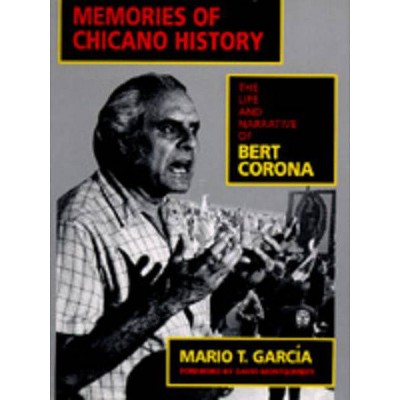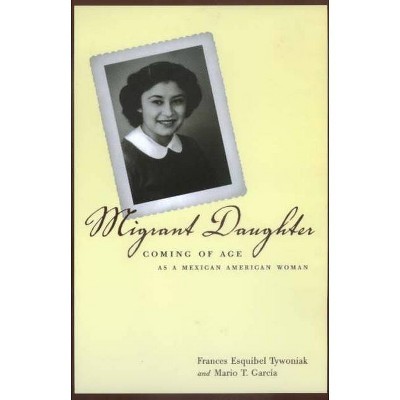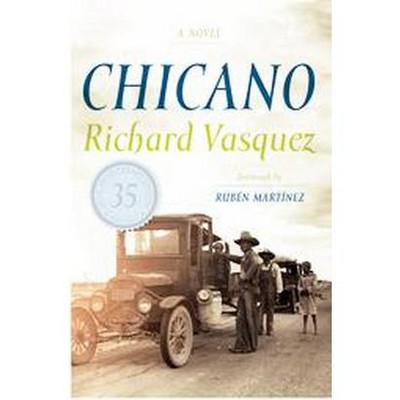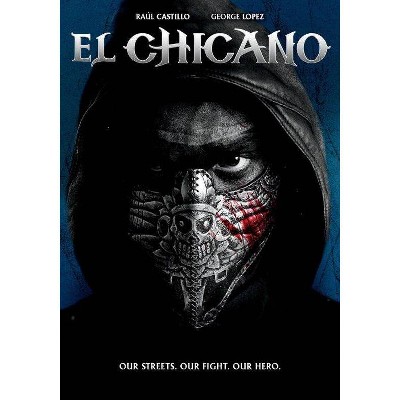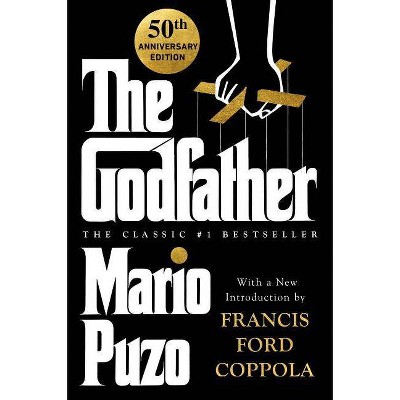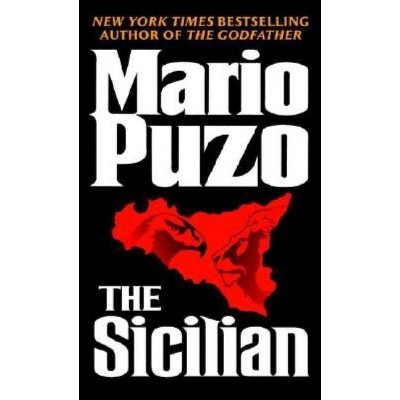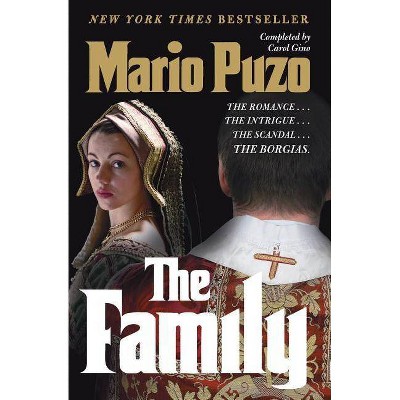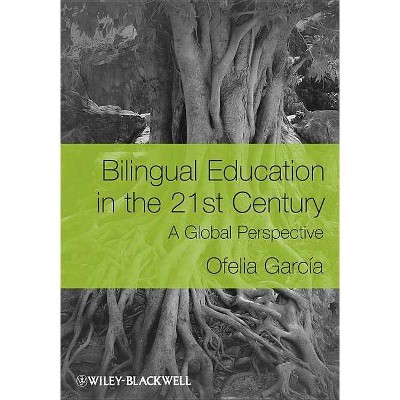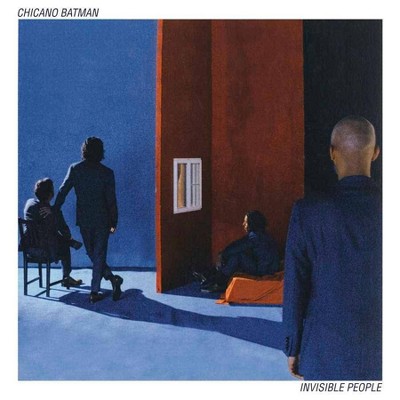The Chicano Generation - by Mario T García (Paperback)
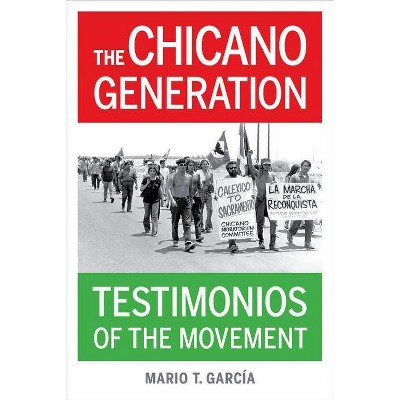
Similar Products
Products of same category from the store
AllProduct info
<p/><br></br><p><b> About the Book </b></p></br></br>"This is the story of the historic Chicano Movement in Los Angeles during the late 1960s and 1970s. The Chicano Movement was the largest civil rights and empowerment movement in the history of Mexican Americans in the United States. The movement was led by a new generation of political activists calling themselves Chicanos, a countercultural barrio term. This book is the story of three key activists, Raul Ruiz, Gloria Arellanes, and Rosalio Muanoz, who through oral history related their experiences as movement activist to historian Mario T. Garcaia. As first-person autobiographical narratives, these stories put a human face to this profound social movement and provide a life-story perspective as to why these individuals became activists"--Provided by publisher.<p/><br></br><p><b> Book Synopsis </b></p></br></br>In <i>The Chicano Generation</i>, veteran Chicano civil rights scholar Mario T. García provides a rare look inside the struggles of the 1960s and 1970s as they unfolded in Los Angeles.<br /><br />Based on in-depth interviews conducted with three key activists, this book illuminates the lives of Raul Ruiz, Gloria Arellanes, and Rosalio Muñoz-their family histories and widely divergent backgrounds; the events surrounding their growing consciousness as Chicanos; the sexism encountered by Arellanes; and the aftermath of their political histories.<br /><br />In his substantial introduction, García situates the Chicano movement in Los Angeles and contextualizes activism within the largest civil rights and empowerment struggle by Mexican Americans in US history-a struggle that featured César Chávez and the farm workers, the student movement highlighted by the 1968 LA school blowouts, the Chicano antiwar movement, the organization of La Raza Unida Party, the Chicana feminist movement, the organizing of undocumented workers, and the Chicano Renaissance. <br /><br />Weaving this revolution against a backdrop of historic Mexican American activism from the 1930s to the 1960s and the contemporary black power and black civil rights movements, García gives readers the best representations of the Chicano generation in Los Angeles.<p/><br></br><p><b> From the Back Cover </b></p></br></br>"A fascinating voyage back to a time when young Mexican Americans became Chicanas and Chicanos so that they could dismantle the structures that had denied their parents and grandparents the dignity they deserved. Through the eyes of three key protagonists, we experience the exhilaration, frustration, courage, defeats, and victories of a small group of dedicated organizers who understood that the risks they took and the sacrifices they made would improve conditions for their generation and generations to come. Fifty years later with rampant inequality on the rise, their stories are more compelling than ever."--Jorge Mariscal, author of <i>Brown-Eyed Children of the Sun: Lessons from the Chicano Movement, 1965-1975</i> <p/> "These stories are invaluable for understanding not only the Chicano/a movement (and in fact Gloria Arellanes's testimony makes clear that we should call it the Chicano/a movement), but also the way that activists are formed, how they view themselves beyond their radical work, and what they see as their contributions to their communities. Although García uses a familiar approach to gather these voices, he nonetheless yields original and significant content that provides great insight into the relationship between the personal and the political."--Ernesto Chávez, author of "<i>¡Mi Raza Primero!" Nationalism, Identity, and Insurgency in the Chicano Movement in Los Angeles, 1966-1978</i> <p/> "García affirms again why he is one of the premier historians of the Chicano movement as he continues to peel the layers off that social catharsis with this new book, which introduces us to three individuals whose lives reflect those of many others who became activists for La Raza. This self-portrayal guided and constructed with García's ample understanding of the movement and the daily lives of Chicanos will enhance our understanding of that most important era of Mexican American history."--Ignacio M. García, author of <i>When Mexicans Could Play Ball</i> <p/> "<i>The Chicano Generation</i> continues to fill in the spacious canvas that Mario T. García has been painting throughout his career as one of our preeminent historians. The voices of Ruiz, Arellanes, and Muñoz narrate and critique the development of el movimiento, as well as offer an indispensable portrait of Los Angeles at a crucial crossroads--the moment that Chican@s took history into their own hands. Told in testimonial style, it is the voice of the movement itself."--Rubén Martínez, author of <i>Desert America: A Journey across Our Most Divided Landscape</i> <p/> <br> "Books like this are important, not just for scholars but to a wider audience. These were real people who created change that many of us still benefit from today."--<i>El Paso Times</i><p/><br></br><p><b> Review Quotes </b></p></br></br><br>"Over twenty years in the making, the book relies on the use of testimonios, or testimonies . . . intended to educate others while also inspiring them to continue the struggle."-- "Southwestern Historical Quarterly"<br><br>"The book would be a valuable resource for any course that purviews the Chicano Movimiento, Chican@/Latin@ politics, critical legal studies, grassroots organizing, or leadership models for social change."-- "Pacific Historical Review" (7/26/2017 12:00:00 AM)<br><br>"[<i>Heavy Ground</i>] does something unexpected. It opens a new perspective onto William Mulholland... [bringing him] to life in all his sharp-elbowed, stubborn glory, saddened and perplexed by the St. Francis Dam debacle yet prideful until the end."--John Buntin "Wall Street Journal" (1/22/2016 12:00:00 AM)<br><br>"This book is a welcome contribution to understanding the Chicano movement and is convincing because the narrators actually participated in the events. Their complicated humanity makes for compelling history in the first person."--Richard Griswold Del Castillo "Western Historical Quarterly" (7/8/2016 12:00:00 AM)<br><p/><br></br><p><b> About the Author </b></p></br></br><b>Mario T. García</b> is Professor of Chicano Studies and History at the University of California, Santa Barbara. He is the author of many books, including <i>The Gospel of César Chávez</i><i>, </i><i> Mexican Americans</i><i>, </i><i> A Dolores Huerta Reader</i><i>, </i><i> Desert Immigrants</i><i>, </i><i> Blowout!: Sal Castro and the Chicano Struggle for Educational Justice</i><i>, </i> and <i>Memories of Chicano History</i> (UC Press).
Price History
Price Archive shows prices from various stores, lets you see history and find the cheapest. There is no actual sale on the website. For all support, inquiry and suggestion messagescommunication@pricearchive.us

